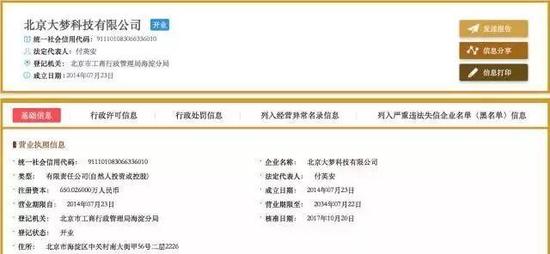Another ride-sharing company has collapsed!
When you wake up tomorrow, the business might be gone. If this is your last day at EZZY, what would you do?
This was what Fu Qiang, the founder and CEO of EZZY, said at the EZZY strategy conference in May this year. Five months later, his words turned into reality.
On the evening of October 23, the company informed employees that they were leaving.
On October 24, an internal employee told the media that the company had not given any prior notice when it stopped operations.
On October 25, EZZY officially announced to the public that it had terminated its services and was working on handling the aftermath. A liquidation team was formed to manage the process.
More than two months ago, an article titled "Shared Audi and BMW Go Global" sparked a lot of attention. Now, news of EZZY's closure has emerged, adding to the embarrassment.
The office is empty now.
According to EZZY’s official website, the company was founded in 2014 as a self-driving travel service for urban areas, focusing on short-distance travel. It offered instant travel options, allowing users to book a car anytime, anywhere with just one click. The EZZY GO service also included tailored options like morning delivery and airport transfers.
EZZY used BMW i3s for its self-drive services, but also included gasoline models such as Mercedes-Benz, BMW, and Audi. The company positioned itself as different from traditional car rental or time-sharing services, emphasizing quality travel experiences and scene-based city life.
According to IT Orange data, Beijing Dream Technology Co., Ltd., the operating company behind EZZY, raised RMB 40 million in angel funding in April 2015 and secured another round of financing in March 2017.
Public records show that Beijing Dream Technology has a registered capital of RMB 300,000. Its founder, Fu Qiang, previously worked in investment banking at Galaxy Securities before launching EZZY in 2014 and transitioning to the shared car industry in 2016.

Beijing Dream Technology
In May, EZZY launched a new brand image at a Hilton Hotel in Beijing, announcing plans to expand from Beijing to four first-tier cities in the "Northern Guangshen" region. It aimed to have 5,000 cars nationwide by the end of the year.
On October 24, some media visited the registered address of Beijing Dream Technology at No. 140371, 14th Floor, Building 1, No. 33, North Road, Renmin University, Haidian District, Beijing. They found that the building was an office complex, and according to the building’s staff, “There is no 140,371 on the 14th floor, and we’ve never heard of this company.â€
An internal EZZY employee said, “I don’t know where the Haidian office is. Even if I find it, it doesn’t matter because most employees are no longer there. Some are still working, but they have their own offices, and I don’t know where.â€
Employees confirmed that their labor contracts had not been terminated.
Liquidation has begun.
After EZZY announced its dissolution, a liquidation team started handling the follow-up. According to previous reports, EZZY had nearly 100,000 users. However, employees confirmed that only about 1,800 users had paid deposits. Based on the 2,000 yuan deposit displayed on the website, EZZY collected approximately 3.6 million yuan in deposits.
However, the company did not provide a clear plan for handling user deposits or account balances. Instead, it sent SMS notifications asking users to submit refund claims via email within 30 days. The email must include personal details, ID scans, and bank account information.
A member of the liquidation team stated that deposits could not be refunded immediately and that repayment would depend on the order of debts after the liquidation process. Despite this, many users still went to the office seeking answers.
Legal experts say that liquidation is different from bankruptcy. It is an internal process that does not require external intervention. If assets are insufficient, the company may apply for bankruptcy. If that happens, user deposits could be lost.
Currently, only one shared car platform is profitable.
Analysts believe high operational costs and unprofitable models were key reasons for EZZY’s collapse. Peng Bo, a partner at PricewaterhouseCoopers, noted that many shared car companies are still in the early stages of development, struggling with profitability.
Since the start of the year, shared car services have become a hot topic, attracting major players from tech, automotive, and dealership sectors. As of late 2016, over 370 platforms existed in China, with more than 100 active.
Investor interest in shared mobility has grown significantly. From 2013 to 2016, total funding rose from 10 million to 150 million yuan, with an average annual increase of 50 million yuan. In the first half of this year alone, several shared car companies raised nearly 400 million yuan, with annual fundraising expected to exceed 800 million.
Despite the enthusiasm, achieving profitability remains a challenge. Peng Bo revealed that out of over 30 domestic time-sharing companies, only one is currently making a profit. He believes that low pricing models make it difficult to turn a profit in the short term. Increasing vehicle usage rates is key, but this depends on user numbers and other factors.
“The shared car industry is still in the exploration phase,†Peng Bo said. “It may take a couple of years before the model becomes truly profitable.â€
Ceramic Heater Bracket Holder,Alumina Ceramic Element,Ceramic Spacer Block,Ceramic Spacer
Yixing Guangming Special Ceramics Co.,Ltd , https://www.yxgmtc.com